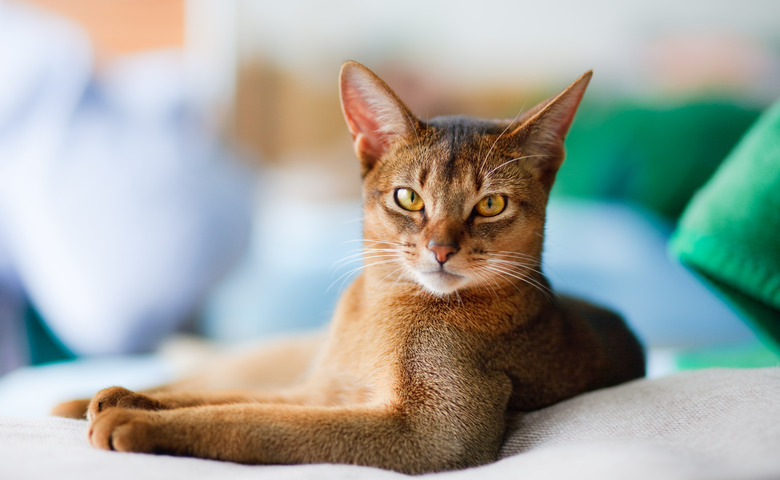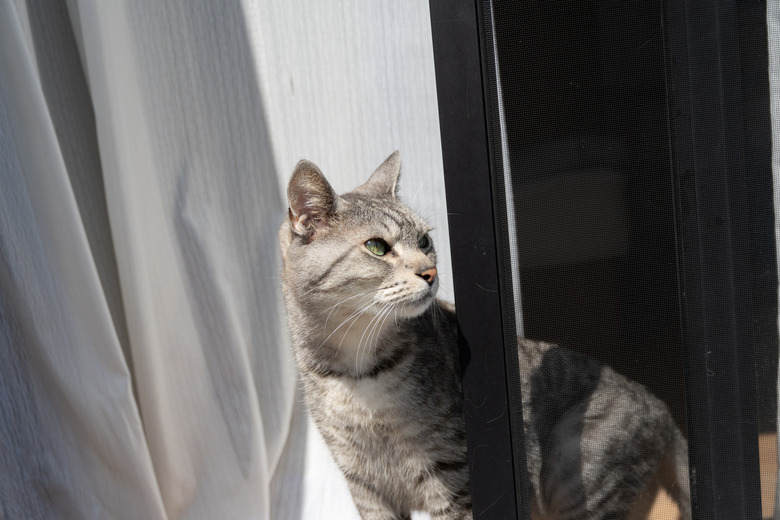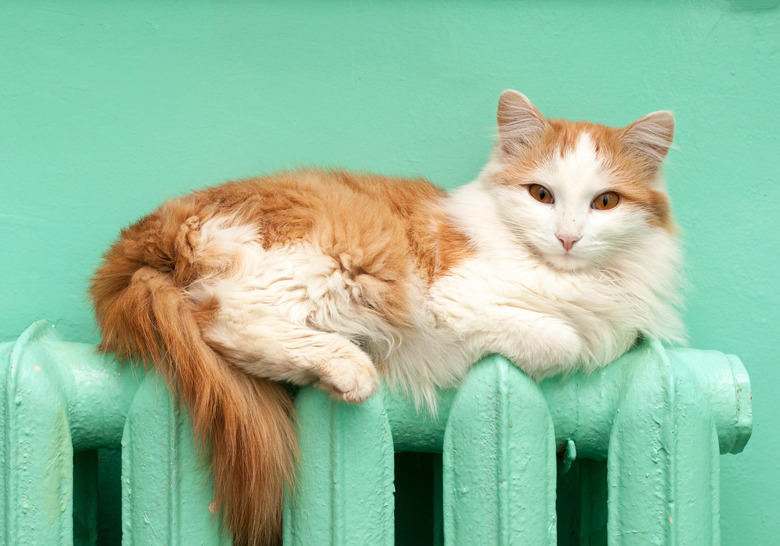How Long Do Cats Live After Showing Signs Of Dementia?
Feline dementia, formally known as feline cognitive dysfunction, doesn't directly cause death but may affect a cat's quality of life and be a factor in the decision to euthanize a cat. Feline cognitive dysfunction syndrome is a common disease in aging cats that affects memory, learning ability, awareness, sight, and hearing. It may also cause sleep disturbances, disorientation, and aggression and may cause the cat to forget normal behaviors, like litter box use.
It is important to note that other diseases, such as hyperthyroidism and kidney disease, can have similar symptoms, and you'll want to rule out other health issues and diseases before deciding that your cat has dementia.
As it does in humans, dementia generally occurs in older cats who might simultaneously suffer from other health issues common in elderly felines. It can take several years before the early signs of feline dementia give way to a cognitive decline that truly interferes with your cat's quality of life. As with humans suffering from dementia, approaching this issue with compassion is important. It's essential to be patient and not punish your companion for behavioral issues, recognizing they are not misbehaving or creating messes intentionally.
What causes feline dementia?
What causes feline dementia?
The exact cause of feline dementia is not well understood, although it may be a process of cognitive decline similar to Alzheimer's disease in people. Other ailments, like arthritis (which would make movement difficult) and hypertension (which could cause anxiety and confusion) must be ruled out and treated.
It may be possible to help slow the progression of cat dementia by doing things like providing a healthy diet, including supplementing food with vitamin E and other antioxidants, or by using an anti-anxiety drug, like fluoxetine.
Dementia in cats
Dementia in cats
By the time a cat reaches the age of 16 — very old age for a feline — they have an 80 percent chance of suffering from feline cognitive dysfunction. Signs of dementia in cats can start years earlier, with more than half of cats age 11 to 15 showing signs. If your older cat starts having elimination accidents in the house, appears disoriented, stops grooming themself, exhibits personality changes, and starts displaying aggression toward you or your other pets, take them to the veterinarian for a diagnosis.
How to support felines with dementia
How to support felines with dementia
There are a variety of ways that owners can support a cat with feline cognitive dysfunction, including modifying the environment to make it easier for the cat, using pheromones to keep them calm, keeping feeding and other schedules consistent, and providing extra litter boxes.
Environmental modifications may include making sure that litter boxes are conveniently placed so they are easy to find. It's also helpful if litter boxes have low sides to provide easy access for senior cats. If an older feline has trouble with movement and is finding stairs or jumping on a bed challenging, it would be helpful to install ramps where needed. It may even be a good idea to consult a feline behaviorist for suggestions on how to help a senior cat who is cognitively impaired.
Should you euthanize a cat with feline dementia?
Should you euthanize a cat with feline dementia?
The good news is that you don't have to euthanize a cat just because they have dementia. While there is no cure for feline dementia, there are numerous ways that you can help your companion live a happy life, such as by maintaining a safe, senior-feline-friendly environment and possibly adding vitamin supplements and antioxidants to their diet.
Your veterinarian can prescribe medication to help alleviate certain symptoms and may suggest dietary changes to aid cognition. Your veterinarian can also advise whether your cat has deteriorated mentally to the point where euthanasia might be the kindest option.
References
- ResearchGate: Veterinary Focus: Feline Cognitive Dysfunction Syndrome
- ASPCA: Older Cats With Behavior Problems
- Cornell University College of Veterinary Medicine: Cognitive Dysfunction
- British Veterinary Association: Cognitive Dysfunction in Cats: Update on Neuropathological and Behavioural Changes Plus Clinical Management


